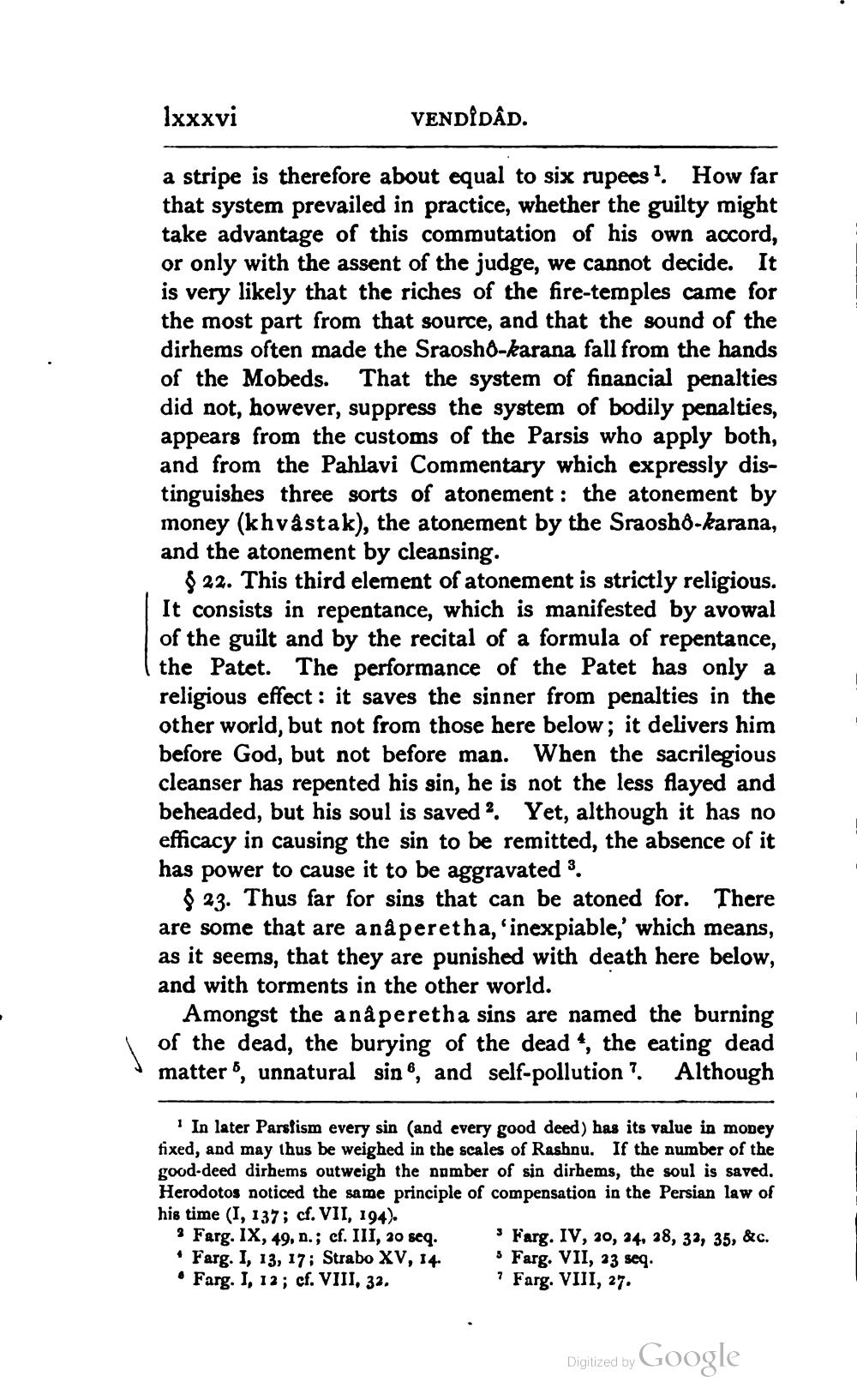________________
1xxxvi
VENDIDÂD.
a stripe is therefore about equal to six rupees? How far that system prevailed in practice, whether the guilty might take advantage of this commutation of his own accord, or only with the assent of the judge, we cannot decide. It is very likely that the riches of the fire-temples came for the most part from that source, and that the sound of the dirhems often made the Sraosho-karana fall from the hands of the Mobeds. That the system of financial penalties did not, however, suppress the system of bodily penalties, appears from the customs of the Parsis who apply both, and from the Pahlavi Commentary which expressly distinguishes three sorts of atonement: the atonement by money (khvastak), the atonement by the Sraosho-karana, and the atonement by cleansing.
$ 22. This third element of atonement is strictly religious. It consists in repentance, which is manifested by avowal of the guilt and by the recital of a formula of repentance, the Patet. The performance of the Patet has only a religious effect: it saves the sinner from penalties in the other world, but not from those here below; it delivers him before God, but not before man. When the sacrilegious cleanser has repented his sin, he is not the less flayed and beheaded, but his soul is saved? Yet, although it has no efficacy in causing the sin to be remitted, the absence of it has power to cause it to be aggravated %.
$ 23. Thus far for sins that can be atoned for. There are some that are anaperetha, 'inexpiable,' which means, as it seems, that they are punished with death here below, and with torments in the other world.
Amongst the anå peretha sins are named the burning of the dead, the burying of the dead “, the eating dead matter, unnatural sin, and self-pollution?. Although
In later Parsfism every sin (and every good deed) has its value in money fixed, and may thus be weighed in the scales of Rashnu. If the number of the good-deed dirhems outweigh the number of sin dirhems, the soul is saved. Herodotos noticed the same principle of compensation in the Persian law of his time (I, 137; cf. VII, 194).
3 Farg. IX, 49, n.; cf. III, 30 seq. Farg. IV, 20, 24, 28, 33, 35, &c. • Farg. I, 13, 17: Strabo XV, 14. 5 Farg. VII, 23 seq. • Farg. I, 12; cf. VIII, 32.
? Farg. VIII, 27.
Digitized by Google




